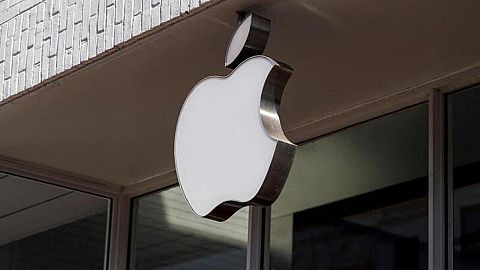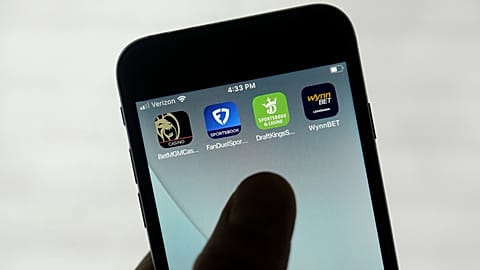Bitcoin was developed as a decentralised payment system but decentralised finance, or DeFi, proposes to do much more than that.
DeFi, short for decentralised finance, is another buzzword that has entered our lexicon, joining the likes of Bitcoin, cryptocurrency, NFTs, blockchain and the metaverse.
 ADVERTISEMENT
ADVERTISEMENT
 ADVERTISEMENT
ADVERTISEMENT
So, what is it?
Today, most of the financial transactions in the economy are digital. We’re still using banknotes and coins on occasions but it’s marginal.
It’s a logical step that this mainly digital finance evolves in a decentralised way, says Marc Zeller, Head of Developer Relations at Aave.
Backers of DeFi will tell you that this new system will remove the need for banks and traditional financial third parties to process all kinds of transactions.
But to explain fully what this new system means and how it works, we have to go back to the origins of crypto.
Bitcoin and Ethereum
In the beginning, there was Bitcoin. Invented in 2008, by the pseudonymous Satoshi Nakamoto, the original crypto promised a revolutionary repudiation of banks and financial institutions wielding their fees and oversight on peer-to-peer payments.
In the 13 years since its creation, Bitcoin and the decentralised blockchain technology underpinning it have spawned not only 8,000 other cryptos but also a comprehensive industry spanning crypto wallets, cryptocurrency exchanges, NFT marketplaces, virtual land aggregators, decentralised autonomous organisations, and funds.
One of the innovations that developed on the back of Bitcoin and its blockchain was Ethereum.
The platform was conceived in 2013 by a young Russian-Canadian, Vitalik Buterin, and launched in 2015.
The Ethereum platform came with its own blockchain, its own token, Ether, and its own coding language, Solidity.
"If you think about Bitcoin, this is what we can think about as a DeFi decentralised payment system. Now, you can take it to the next level," Dr Merav Ozair, leading blockchain expert and a FinTech professor at Rutgers Business School, told Euronews Next.
"Bitcoin can only do payments. That's it. Nothing else. So you can think about Ethereum as like the next generation. And Ethereum said, 'OK, this is a nice concept, Bitcoin. Let's create, a playground to allow for all other applications to happen," she said.
Ethereum expanded the use of the blockchain beyond a simple payment system and gave tools to developers to create entire programmes that could be stored on them. These came to be known as smart contracts.
Smart contracts
"Any contract that you do in the real world, whether you're taking a mortgage or you're asking for a loan or you would like to trade some stock or bond, it's rule-based. So, this rule base can be coded," said Ozair.
And that’s exactly what smart contracts are, pieces of code that automatically execute actions if certain parameters are met.
"The revolution of smart contracts is that instead of being hosted on a computer, they are hosted by everyone who has a copy of the blockchain in question," said Zeller.
"These smarts cannot be modified and they will remain with exactly the same code that will run exactly the same way. Forever," he added.
Why do we need it?
Why would we even need to replace the traditional financial system with a decentralised version? According to some experts, DeFi has a few advantages over its centralised counterpart.
The first one is efficiency. Removing intermediaries supposedly causes less friction and makes processing a financial transaction more fluid.
The second advantage relates to costs.
In traditional finance, the intermediaries governing transactions are taking fees that are generally higher than the ones you currently pay on DeFi apps.
"Whether it's with a bank or buying stocks or things like that, you're interacting with a centralized exchange," TokenBrice, DeFi expert, told Euronews Next.
"But the worst part and this is where it hurts, is often you interact with a series of intermediaries And so that, of course, involves a bit of death by a thousand cuts in terms of costs".
The last selling point of DeFi, experts agree, is that it’s a more open, democratic system.
According to the 2017 Global Findex report, worldwide, there are about 1.7 billion adults that are unbanked, meaning they are excluded from the financial system.
With DeFi, you don’t necessarily have to have a bank account to access financial tools, but you do need an internet connection.
"Because [smart contracts] execute as written, if you meet the conditions, whoever you are, whether you're a single mother or someone with a surname that doesn't necessarily represent the country you live in or you’re an American billionaire - you'll have exactly the same access to the same products and to the same return. And that, for me, is a change that is unprecedented in the history of finance," said Zeller.
What can you do with DeFi?
With DeFi, the idea is you have access to all the functions accessible with a crypto token.
You can take out loans and insurance, do derivatives, crowdfund and gamble, among others.
Take a simple example like crowdfunding. Let’s say you want to raise funds for a charity cause. In the current centralised system, you have to trust a third-party platform to collect the funds from donors and give them to the charity when the funding goal is reached.
In a decentralised system, however, you can replace this intermediary and save on platform fees.
You could simply define the parameters of this exchange and encode it in a smart contract on the blockchain.
If the criteria in the smart contract is met, the money is automatically sent to the charity
If it is not met, the funds are returned automatically to all of the people that have donated.
Is it safe?
DeFi promises to democratise finance securely, conveniently and efficiently but does this sound too good to be true?
It does come with some significant risks that need to be taken into account.
The first one is bugs in the smart contracts. As they are immutable, if you have an error in the code, it will be repeated over and over again.
The second risk concerns hackers, who can find breaches in the code and exploit it for their own benefits.
The third risk relates to the volatility of cryptocurrencies.
"The general public is pretty aware that sometimes [Bitcoin] is worth $50,000 [€43,770], sometimes it's worth $20,000 [€17,500]. Sometimes it's worth 80,000 [€70,000]. There is a volatility that is quite high and that will often slow down the investor and the saver at all levels," Zeller said.
The final risk concerns the difficulty for newcomers to understand what DeFi projects to pick and which ones to invest in.
Will DeFi spell the end of financial institutions as we know them?
As DeFi seems to offer everything that traditional finance does and even more, is it going to be the end of the financial system as we know it?
Experts say it’s more complicated than that.
Speaking to Euronews Next, economist and founder of the Digiconomist.net website, Alex de Vries expressed scepticism about how widespread adoption of DeFi will be.
"The question is to what extent will the rest of the world really want to be on decentralised finance because ultimately a key model of the decentralised finance world is you're going to be your own bank, but being your own bank comes with a lot of downsides," he said.
"It puts all the responsibility on yourself, so you have to do your own private key management. You have to keep your money safe. And if something goes wrong, there's nobody there to help you," he added.
Experts say, the intermediaries won’t automatically disappear but their role will have to evolve. They’ll find themself in need to prove their added value to the public as they won’t be in a monopoly situation anymore.

















